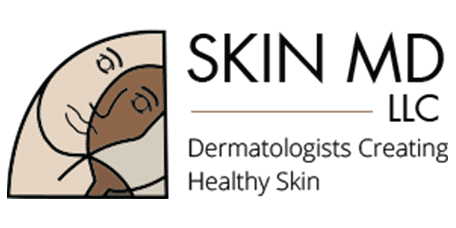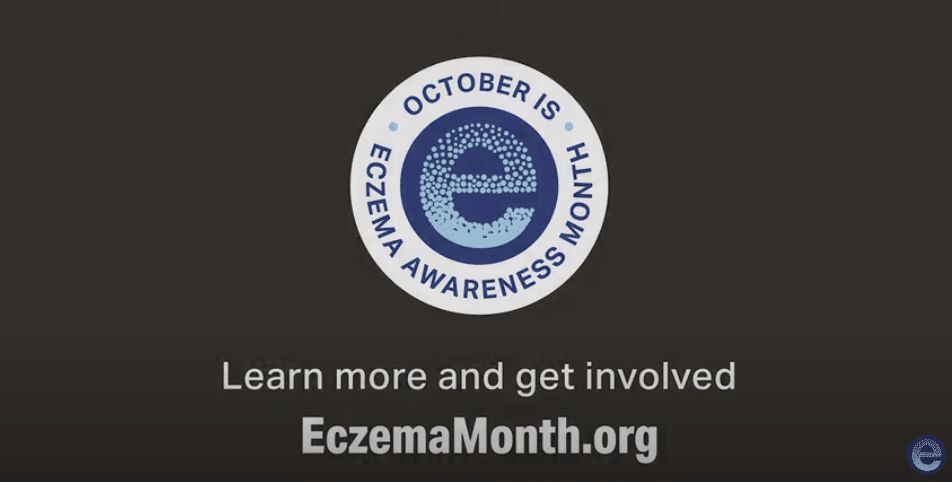This information was originally published by the National Eczema Association.
Eczema Affects 31 Million Americans
More than 31 million Americans have some form of eczema. Eczema can begin during childhood, adolescence, or adulthood ranging from mild to severe. Newborn babies can experience eczema within the first weeks and months after birth. Young children with eczema can experience patches of skin that are extremely dry; itchy skin that can lead to blisters and skin infections due to excessive scratching.
Eczema Flare-Ups
Many people with eczema use the phrase “flare-up” to describe a phase of eczema when they are experiencing one or more acute symptoms or side effects from prolonged itchiness; severe eczema may include periods of flare-ups that can last many days or even several weeks. Moisturizers, antihistamines, topical steroid creams and corticosteroids are among the potential courses of eczema treatments we recommend at SkinMD.
Atopic dermatitis, the most common type of eczema, results from an overactive immune system that causes the skin barrier to become dry and itchy. Eczema is not contagious, you can’t “catch it” from someone else. While the exact cause of eczema is unknown, researchers do know that people develop eczema because of an interaction between genes and environmental triggers. Many people with eczema often report comorbid symptoms of hay fever, allergic asthma and food allergies. Proper, consistent skin care is essential in the prevention and management of eczema.
What are the causes of eczema?
Many factors can contribute to eczema, including an interaction between your environment and your genes. When an irritant or an allergen from outside or inside the body “switches on” the immune system, it produces inflammation, or a flare-up, on the surface of the skin. This inflammation causes the symptoms common to most types of eczema. Creases of the skin, especially the flexural areas behind the knees, elbows, lower legs and other areas of skin that rub against each other can lead to irritation. There is also a potential genetic component to eczema that includes a protein called “filaggrin” that helps maintain moisture in your skin; a filaggrin deficiency can lead to drier, itchier skin.
Many common household items are also potential environmental irritants and can cause allergic reactions leading to an eczema flare. Additional common triggers of eczema may include:
- extended exposure to dry air, extreme heat or cold
- some types of soap, shampoo, bubble bath, body wash, and facial cleansers
- laundry detergents and fabric softeners with chemical additives
- certain fabrics like wool or polyester in clothing and sheets
- surface cleaners and disinfectants
- natural liquids like the juice from fruit, vegetables and meats
- fragrances in candles
- metals, especially nickel, in jewelry or utensils
- formaldehyde, which is found in household disinfectants, some vaccines, glues and adhesives
- isothiazolinone, an antibacterial found in personal care products like baby wipes
- cocamidopropyl betaine, which is used to thicken shampoos and lotions
- paraphenylene-diamine, which is used in leather dyes and temporary tattoos
Emotional stress can also trigger an eczema flare-up, but it’s not exactly known why. Some people’s eczema symptoms and flare-ups get worse when they’re feeling “stressed.” Others may become stressed, just knowing they have eczema, and this can make their skin flare up.
What are the symptoms of eczema?
The most important thing to remember is that eczema and its symptoms are different for everyone. Every individual’s skin care routine will also impact the affected areas of the skin differently. Your eczema may not look the same on you as it does on another adult or on your child. Different types of eczema may even appear in different affected areas of the body at different times. Some people mistake symptoms of psoriasis for eczema, although the two conditions are different.
Eczema almost always includes itchy skin. The scientific term for itch is “pruritus.” For many people, the itch can range from mild to moderate. Sometimes the itch gets so bad that people scratch it until it bleeds. This is called the “itch-scratch cycle.”
Symptoms of eczema often include:
- Itch
- Dryness, sensitive skin
- Inflamed, discolored skin
- Rough, leathery or scaly skin, appearing as scaly patches
- Oozing or crusting
- Areas of swelling
You might have all of these symptoms of eczema or only just a few. You might have some flare-ups or your symptoms could go away entirely. Eczema can appear red in lighter skin, whereas people of color may experience eczema as ashen skin, gray skin, darker brown or purple in color. Black Americans are more likely to report severe symptoms associated with eczema.
Is there a cure for eczema?
There is no cure for eczema, but there are treatments. Every treatment plan should be tailored to your individual eczema symptoms. Depending on your age and the severity of your eczema, these treatments might include: medical grade moisturizing creams, prescription topical medications including topical corticosteroids, over-the-counter (OTC) home remedies, phototherapy (also known as light therapy), immunosuppressants and injectable biologics. Many people with eczema also find success with specific natural and alternative treatments, including bleach baths, cryotherapy, medical-grade honey, meditation and acupuncture.
For most types of eczema, managing flares comes down to these basics:
- Know your triggers so that you can avoid exposure;
- Implement a daily bathing and moisturizing routine;
- Use OTC creams and prescription medication consistently and as prescribed.
Symptoms may be different from one child to the next. More often than not, eczema goes away as a child grows older, though some children will continue to experience eczema into adulthood. Adults can develop eczema, too, even if they never had it as a child.
Why Choose SkinMD?
At SkinMD, patients have access to some of the most sought-after dermatologists, nurse practitioners, physician assistants, and aestheticians in the industry. The practice has also recruited a great administrative staff who help patients navigate scheduling, follow-up care, insurance issues, and more. At SkinMD, every patient is treated like a valued member of the practice family, from the time they book their initial appointment through their eczema treatment and beyond. To get started on treating your eczema, contact our office today.



